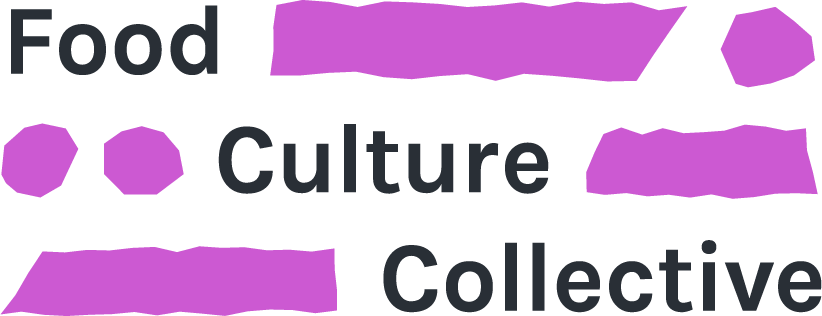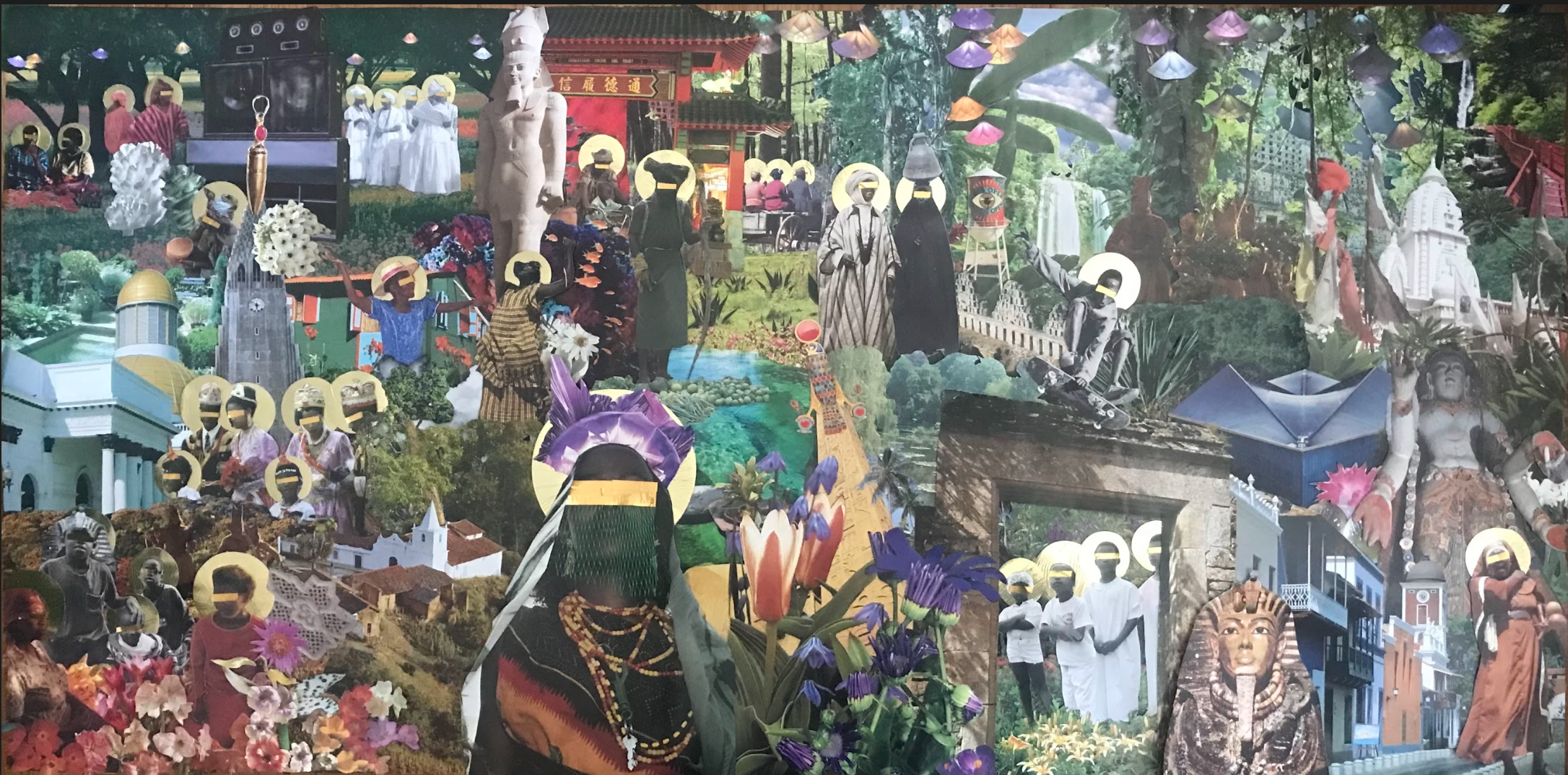Play with Your Food; Reimagine Our World
Artist Aisha Shillingford’s interpretation of the Food Culture Collective Vision: We dare to dream of a world shaped by care for the lands, waters, and peoples to whom we belong. Follow Intelligent Mischief on Instagram for more from Shillingford.
The following is an excerpt from the article, “Play with Your Food; Reimagine Our World,” by Food Culture Collective’s Jovida Ross, published in Grantmakers in the Arts' GIA Reader. They dig into transforming food culture (and mainstream culture at large) by nourishing healing narratives, embracing liberatory power, centering creativity and play, and leaning into embodied cultural knowledge.
The Cultural Power of Food
My mother always grew food. Though our lives together were often unstable and unpredictable, she implicitly transmitted that we are people who work the soil. I remember wondering if the tiny lettuce seeds I pushed into the soft dirt would sprout? It seemed implausible, but they did. I learned to weed and water the vegetables we grew, and she would send me out to clip leaves for our dinner salad.
There were no family stories that came along with this responsibility. I thought it was just a way to eat on the cheap! Now, I understand that, through food, my mother connected me to our celtic, germanic, and anglo family tree. Tending plants was a small, unspoken transmission across generations.
Thinking back, I’m not surprised that I didn’t recognize the value of these everyday acts. Like many people who grow up in the United States, my way of understanding the world was shaped by a dominant narrative that frames “the natural world” as inert and available to exploit.
“That's how powerful implicit narratives are—they shape our assumptions and our cultural norms, so they shape the decisions and actions that flow from them…”
This logic is explicitly connected with racial hierarchy: the invention of Whiteness was designed to justify Europeans' mistreatment of the peoples whose lands they colonized: to portray African, Asian, and Indigenous American people as less “human,” more “nature.” European colonizers also established the blueprint for our modern economy and food systems through violent land grabs and plantations, based on the same assumptions of extraction and exploitation. My family benefited by gaining access to land they farmed when they immigrated to North America.
That's how powerful implicit narratives are—they shape our assumptions and our cultural norms, so they shape the decisions and actions that flow from them…
Read more about reclaiming our stories, nourishing liberatory power, and mapping our community narratives to radically transform food culture in the GIA Reader.
Photo by Kristen Murakoshi
About the Author
Jovida Ross (she/they) is a visionary facilitator and strategist who's spent decades working with story-sharing as a cultural technology that builds community connections and liberatory power. How do we organize ourselves towards a future in which we all flourish? This question has guided her work and collaborations with social justice movement leaders and creatives around the country for the last decade, and ultimately led her to her current work with Food Culture Collective as director and steward.


